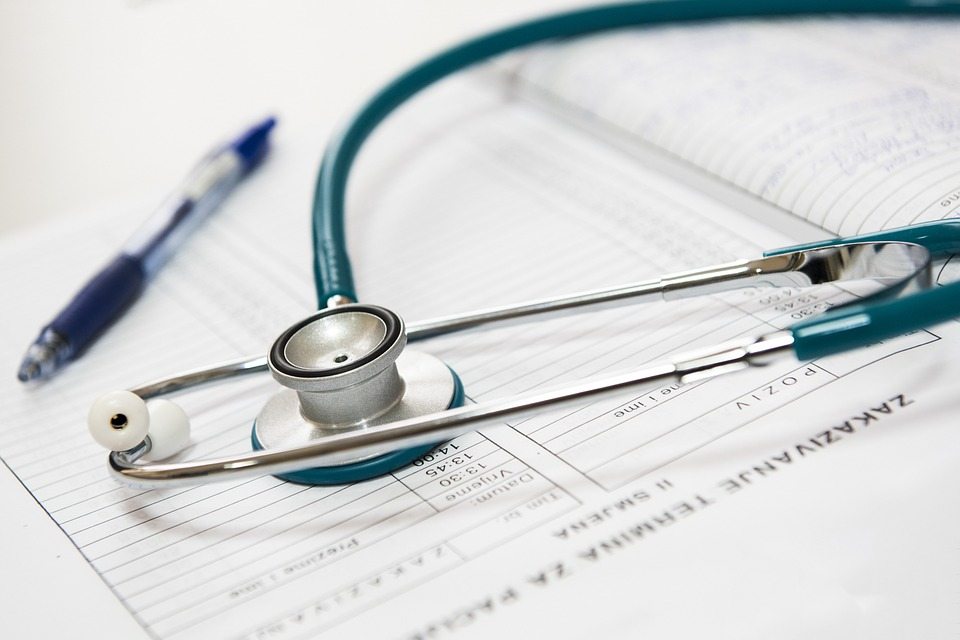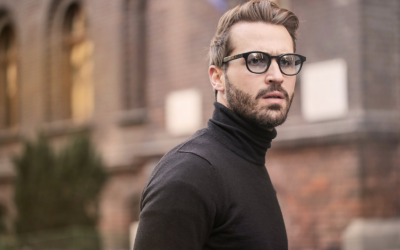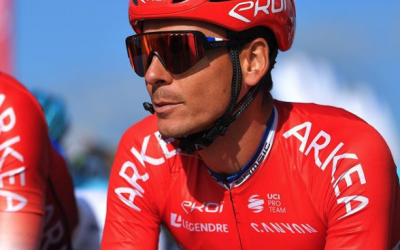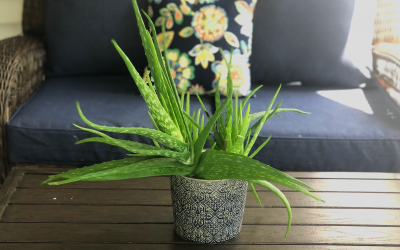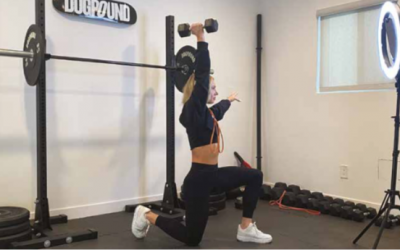Dr. Jennifer L. Marti, Assistant Professor of Surgery at Weill Cornell Medicine and an assistant attending surgeon at NewYork-Presbyterian, is a dual-fellowship trained surgeon specializing in breast surgical oncology and endocrine surgery.
She is proud of the multidisciplinary teams that provide the most advanced treatment options available in the New York area to patients with breast, thyroid and parathyroid diseases. As a surgeon, Dr. Marti helps patients navigate this process in order to make the most informed decisions.
Following medical school and general surgery residency at New York University School of Medicine, Dr. Marti completed advanced surgical fellowships at both Memorial Sloan Kettering Cancer Center and Yale.
Dr. Jennifer Marti’s practice focuses on the treatment of benign and malignant disorders of the breast, thyroid and parathyroid glands. These conditions include breast cancer, breast masses, abnormal mammograms and breast biopsies, a family history of breast cancer, thyroid nodules, thyroid cancer, hyperthyroidism (such as due to Graves’ disease), thyroid cancer and hyperparathyroidism.
She has expertise in all aspects of breast surgery (including newer techniques such as nipple-sparing mastectomy) and endocrine surgery (including minimally invasive parathyroidectomy, thyroidectomy, modified radical neck dissection, carotid body tumor excision and intraoperative nerve monitoring).
In addition, Dr. Marti now offers patients with small papillary thyroid cancers the option of active surveillance, which can avoid unnecessary surgery. For patients with indeterminate thyroid nodules, she has published research on the optimal use of molecular assays such as Thyroseq and Afirma.
Dr. Marti is an active member of the New York Surgical Society, American Association of Endocrine Surgeons, American Society of Breast Surgeons and the Society of Surgical Oncology. She is a regular speaker at national conferences and serves on several national society committees. Dr. Marti sees patients at NewYork-Presbyterian/Lower Manhattan Hospital, and at New York Methodist Hospital in Park Slope, Brooklyn. To make an appointment with Dr. Marti, call (646) 962-5213.
DTM What sort of unique benefits does NewYork-Presbyterian offer downtown Manhattan in the category of breast cancer?
Dr. Marti At NewYork-Presbyterian/Lower Manhattan Hospital, we are in the unique position to offer patients a personalized approach to breast cancer, with the resources of the large academic center of Weill Cornell Medicine. We have a superb multidisciplinary team composed of breast surgeons, medical oncologists, and radiation oncologists. We are part of a fluid team with offices at NewYork-Presbyterian/Lower Manhattan, uptown, as well as Chinatown and Brooklyn.
DTM What are some of the newest treatment breakthroughs that you offer at the hospital?
Dr. Marti Recent advances in systemic therapy (chemotherapy, targeted therapy) have permitted us to downstage (shrink) large cancers, allowing many patients to keep their breast, and to spare many patients with advanced disease mastectomy and an axillary lymph node dissection (removal of all the lymph nodes of the underarm). Research is underway, with numerous clinical trials, including examining the potential of immunotherapy with radiation for breast cancer.
DTM There are so many questions surrounding this topic. Is this disease hereditary?
Dr. Marti The majority of cases are not hereditary. A hereditary syndrome is responsible for breast cancer in only 5-10 percent of cases. At NewYork-Presbyterian, as part of our breast team, we have genetic counseling services available for patients at high risk of a genetic mutation.
DTM What routine checkups should we have and when are they necessary? In our 20s, 30s, 40s, 50s, and so on? Is there an age when we are safe?
Dr. Marti We are thankful, slowly learning that “less may be more” when it comes to breast cancer screening. Although mammography clearly has a benefit, we are now understanding “false positives” and the diagnosis of slow growing (indolent) cancers that would never have posed a problem. Therefore we now recommend, along with the American Cancer Society and the American Society of Breast Surgeons, that screening mammograms can begin at age 45 instead of age 40; it is now the patient’s choice to pursue them annually from ages 40-44. And once a woman is 55 years of age, mammograms can be performed every two years instead of one. This approach has been commonplace in the U.K. and Australia for years, helping to minimize the needs for unnecessary biopsies and to lower the rate of overdiagnosed cancers (diagnosis of slow-growing cancer that never would have caused a symptom or death).
DTM Am I a candidate if I choose HRT? Many are told that if breast cancer does not run in your family then you are less likely to get breast cancer from HRT?
Dr. Marti The use of hormone replacement therapy increases not only the risk of breast cancer but also the risk of heart disease (heart attacks), strokes, dementia, blood clots (that may travel to the lung) and urinary incontinence. This risk is not affected by a family history of breast cancer. However, if a woman is experiencing severe symptoms after menopause, a short course of hormone replacement therapy is generally considered safe.
DTM With today’s advancements, where are we with preventative care and surgery or alternative methods?
Dr. Marti We know that obesity, smoking, and physical inactivity increases the risk of any type of cancer, and has detrimental effects on one’s overall health as well. Therefore, losing weight, stopping smoking and exercising will decrease one’s risk of breast cancer. Also, I am a firm believer in a healthful diet — avoiding sugar, artificial sweeteners, carbohydrate-rich foods and processed foods is beneficial too.
Regarding alternative therapy, this is currently not recommended for breast cancer. However, we are starting to recognize that many cases of DCIS (ductal carcinoma in situ, or stage 0 breast cancer) and some early-stage invasive breast cancers may be overdiagnosed (that is, it would never have gone on to cause symptoms or death). Three randomized controlled trials are currently underway in Europe and the U.S., comparing surgery to active surveillance (watchful waiting) in patients with DCIS, to help determine which patients can undergo watchful waiting.
DTM Does breastfeeding have any effect on breast cancer? Does it lessen or make one more prone to get it?
Dr. Marti Breastfeeding has been found to decrease the risk of breast cancer. The effect is unknown — it may be due to decreased estrogen exposure (as ovulation is suppressed during breastfeeding), and/or from terminal maturation (differentiation) of cells in the breast.
DTM What is the newest report on implants, breast augmentation, and breast cancer?
Dr. Marti The risk of undergoing breast augmentation is low; overall it is a very safe procedure. It has not been found to increase the risk of breast cancer. However, an extremely rare form of cancer (anaplastic large cell lymphoma) has been reported. However, the risk is extraordinarily small, with only 60 reported cases in the 5-10 million women with implants as of 2011 (www.fda.gov).
DTM Please tell us about the procedure, what should I expect from the time I’m told that there is something on my x-ray?
Dr. Marti Abnormalities (irregularities, lumps, calcium deposits) are commonly detected on screening mammograms. Depending on the appearance of the finding on the mammogram, an ultrasound, needle biopsy, or repeat mammogram at 6 to 12 months will be recommended. The vast majority of these lesions are benign.
DTM Where do you hope to see the future procedures and or treatment of breast cancer?
Dr. Marti I think we are slowly recognizing that overdiagnosis of breast cancer is occurring with screening mammography. It is estimated that up to 30 percent of women with DCIS or early stage invasive ductal cancer may have been overdiagnosed (diagnosed with cancer that would never have resulted in a symptom or death). Unfortunately, currently, we cannot discern which of these cancers can be watched, and which require aggressive treatment. I think in the future we will develop a more sophisticated way to form a genetic analysis of tumors, allowing us to identify which cancers are safe to watch, and which require the standard treatment of surgery (sometimes mastectomy), chemotherapy, radiation and hormone therapy. The use of immunotherapy holds great promise as well for women with aggressive cancers currently resistant to standard therapy.
DTM Can we rid the world of this horrible disease and how can one person make a difference?
Dr. Marti It is important to recognize that not all breast cancer is the same — some behave aggressively, however many are indolent and slow-growing. Thankfully most women have early-stage breast cancers and do very well with treatment (and in the future, perhaps some of these women may undergo watchful waiting without any treatment at all). For the unfortunate women with aggressive, locally advanced cancers, many are successfully treated with surgery, chemotherapy, radiation and hormonal therapy.
Of course, it takes a team of individuals to optimize our care of patients — current research in radiotherapy with immunotherapy is underway at Weill Cornell Medicine, as well as in numerous other clinical trials. This is what makes breast oncology such an exciting field. We are slowly moving forward to tailoring our treatment of patients — minimizing our treatment for patients with slow-growing cancers, and discovering better treatments for patients with aggressive disease that is resistant to standard therapy.
DTM On a personal note, do you live downtown, what is your favorite getaway area in downtown?
Dr. Marti I live on the upper east side. I love coming to work downtown. I love the high energy and diversity of the community I encounter walking down the bustling, narrow streets. I love discovering new restaurants — one of my favorite places for lunch is Vietspot on Nassau Street.
DTM Why did you choose this field and when did you decide that you wanted to become an MD?
I decided to go into medicine when I was in college at the University of Michigan. Originally I was going to be a biochemist, but medicine was a field where I could combine my interest in science with the ability to make a real difference in people’s lives. Once I got to medical school I realized, to my surprise, that I loved surgery – because of the very satisfying, direct, tangible and sometimes immediate, the impact that we offer our patients. At the same time, oncology was always the most intellectually exciting part of medicine, due to the constantly evolving nature of this field. So I became a surgical oncologist. Our practice of cancer care changes rapidly. Within oncology, and particularly in endocrine and breast surgery, the multidisciplinary approach to treatment ensures that every patient receives state-of-the-art care. I really enjoy collaborating with a team, including colleagues in medical oncology, radiation oncology, radiology, pathology and nuclear medicine, to provide optimal, comprehensive care for cancer patients – more than what any single discipline could do on its own.
What especially excites me about my field is the chance to positively impact my patients, going through one of the most uncertain and vulnerable periods of their lives. I feel very fortunate that patients place their trust in me as their surgeon, it is a great responsibility that I never take for granted. This is a truly exciting era for oncology – the emerging research in endocrine and breast surgery make these areas exciting and dynamic fields. Working at Weill Cornell Medicine and NewYork-Presbyterian/Lower Manhattan Hospital, I hope I can continue to make a contribution to the field with my efforts in clinical research and surgical education.
DTM What is your day off like?
Dr. Marti A day off for me is a time to unplug and is devoted to family. On a typical Saturday, you can find me strolling in Central Park with my husband and two children.

